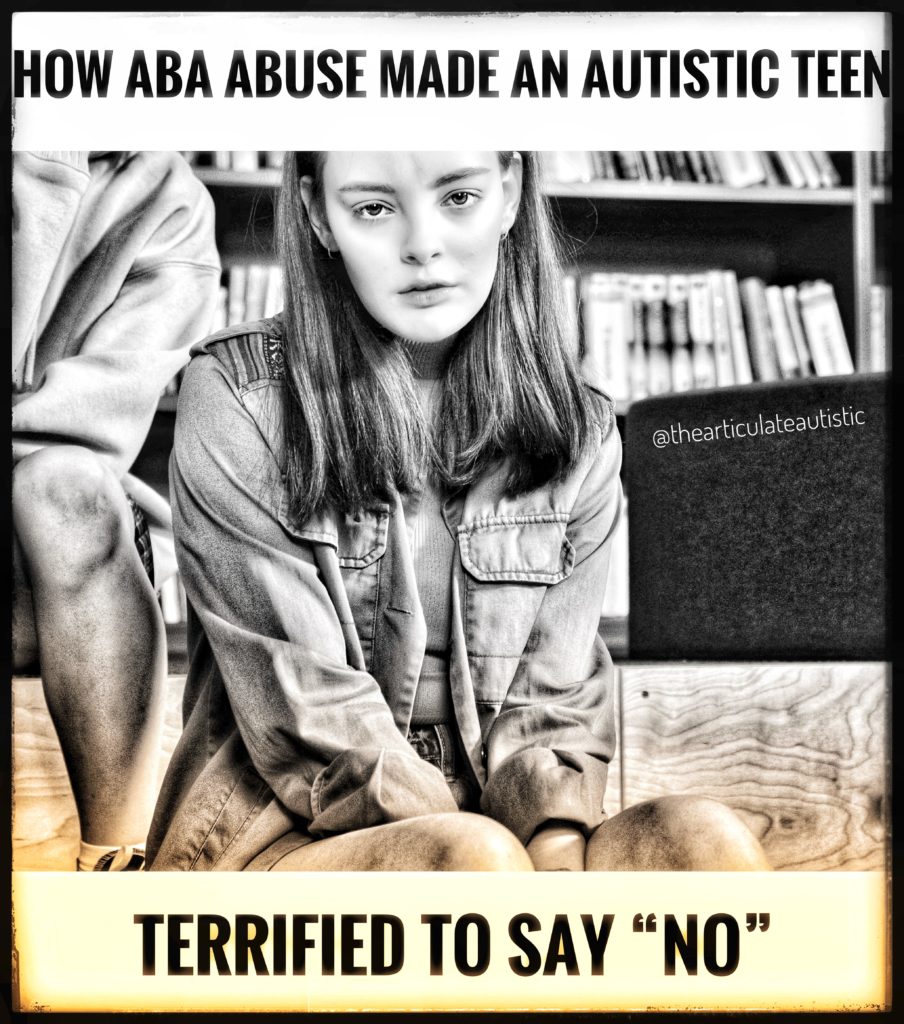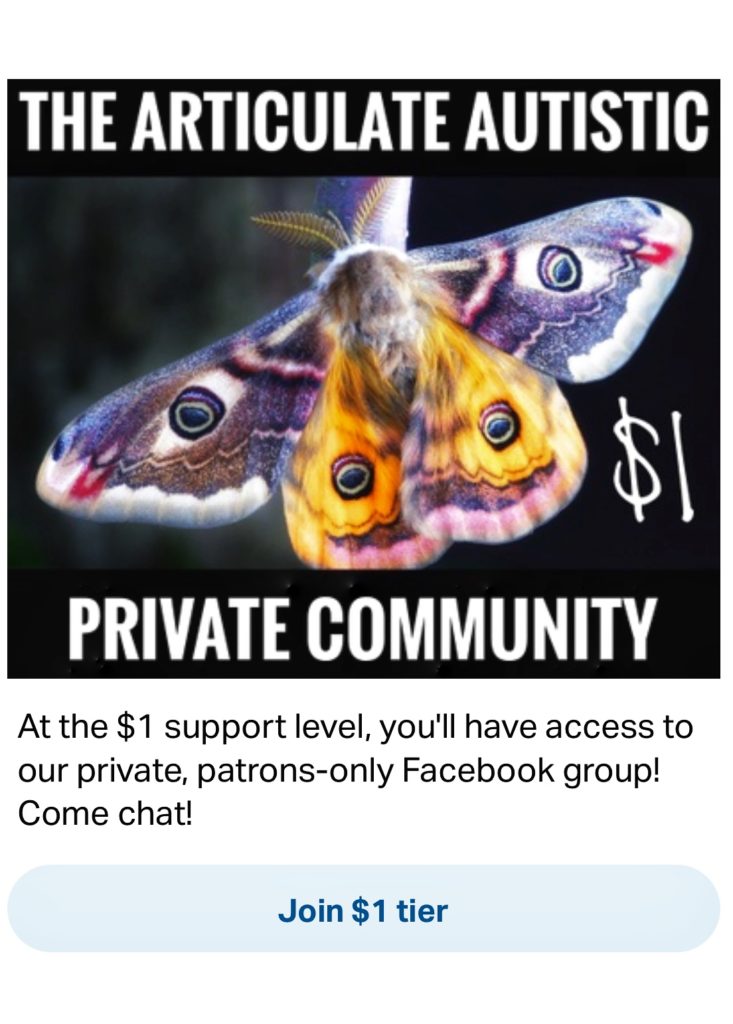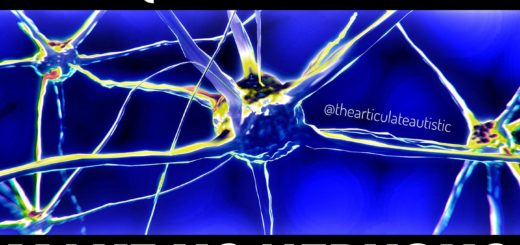ABA Abuse Traumatizes Autistic Teen (A Firsthand Account)

A teenager interacted with one of my posts on Instagram recently and shared a sobering story about their experience with ABA abuse. I asked them privately if I could use their story if I would keep them anonymous. They readily agreed. While this is a short account that may not look like a traumatic experience to those unfamiliar with ABA (Applied Behavior Analysis, which aims to take an autistic person and turn them into a neurotypical-appearing person), this teenager is still reeling from its effects over a year later.
Here is their story below:
“I’ve had an IEP since about 2nd grade, for “unspecified behavioral difficulties”, since they didn’t want to give me a real diagnosis out of fear it would “hold me back from my true potential”.
When I was 12, my family and I moved to a new town, which meant a new school. We had heard nothing but amazing things about this school from everyone we knew, and it sounded like a good fit.
But what we didn’t know was that this school’s special education program used ABA on all students, regardless of parental consent or what disability the child had, which included me.
They changed my IEP without consulting neither my parents nor me, which meant we hadn’t the slightest clue that it had been changed at all. Under my new ABA-influenced IEP, as a way to deal with my executive dysfunction, they were to place a reward of some sort on my desk along with my classwork. Once I completed the classwork, I would get the reward. If I didn’t complete it, I would get no reward and would get kept in the classroom until I completed it.
They would also withhold the reward if I did not perform to their standards (usually anything lower than a B+). I was also not allowed to look away from the paper, as they would deem me “distracted”. When they thought I was distracted, they would take their fist and hit the desk a few times, then say if I didn’t complete my work they would take away the reward and hold me there until I did it.
This only lasted a year before I moved schools again, where they have a different special education system, but the damage a year of that did is immense. I now struggle with saying “no” to anything. I feel like if I say no to something, I will get something taken away and I won’t get to do anything I enjoy. I also now struggle with setting boundaries, since in that year of ABA I was subjected to things like physical redirection, hand-over-hand writing and typing, etc.
On the daily, and I wasn’t allowed to say no to it or I would get my reward taken away.”
Imagine Taking Away a Vulnerable Child’s Autonomy!
Jaime again. This is what scares me the most about this story: It’s so common, and, on the surface, it doesn’t even seem that abusive. Especially, if you’re the type of person who takes abuse to mean screaming at someone or hitting them, but this is why ABA is so insidious.
This young person spent only a year undergoing this “training program”, and now they are terrified to say “no”. Think about that for a second.
When a young person is afraid to say “no” and stand up for themselves, it leaves them incredibly vulnerable to partner abuse, drug abuse, risky behavior, kidnapping, trafficking, and sexual assault.
Talk about training the perfect automaton to do whatever it is you want without question!
This is not in any way safe. Not only does this ABA practice cause young people to question their own gut instincts for fear of being hurt or having their rewards taken away, it also tries to completely overhaul the person’s natural behavior, traits, and personality.
That’s not the goal of education! Education is there to nurture, teach, guide, instruct, motivate, and support. Nothing about ABA does any of this. It just teaches compliance, and, in the wrong situation, that could equal death.




A.B.A. sounds like the kind of program a dictatorial regime would love to universally implement. Alfie Kohn has some choice words for A.B.A. practitioners specifically, and anything remotely related to it.
I was also not allowed to look away from the paper, as they would deem me “distracted”.
Yet another example of the double standards created when ABA is imposed on neurodivergent people. If a typically developing student looks away from their paper for a second to think what to write next, no one slams their desk and tells them to “Get on with your work!”